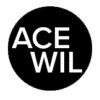Resource Hub
COWIL Newsletters
Latest newsletter: October 2021. The quarterly COWIL Newsletters contain important updates about projects and facilitate sharing between projects.
Assessment and Evaluation Webinar for BC Ministry of Advanced Education Funded Projects (July 2020)
In this webinar, UBC’s Centre for Teaching, Learning and Technology offers strategies and tools to support assessment and evaluation of projects funded by the Ministry of Advanced Education’s $9 million WIL funding. The webinar explores how to create a useful evaluation framework, provides an overview of commonly used data collection methods (e.g., surveys, focus groups and interviews), and helps participants in identifying project milestones, opportunities, and challenges. It also provides relevant information on best practices for common data collection methods such as surveys and focus groups. While focused on Ministry funded projects, this webinar will be useful for anyone keen to develop assessment and evaluation skills for any projects.
(Video) Who are the LE,NOṈET Campus Cousins?
(Video) Employer Response to TRC’s Calls to Action and Indigenous WIL Initiatives
Coastal Restoration Society (CRS) demonstrates their commitment to reconciliation and decolonization by including First Nation perspectives of environmental stewardship. Two Indigenous Students, Hannah and Anakin, who have been hired by CRS, talk about why their work placements have been so meaningful.
(Videos) Career Coaching: Self-identification & Tokenism
In this two video series we explore how WIL practitioners can work with Indigenous students who are facing dilemmas of tokenism and discrimination in the work place, and navigating self-identification and self-location. WIL practitioners utilize resources from the Indigenous WIL resource hub to help coach Indigenous students on next steps.
(Videos) Wren’s Co-op Experience
In this fictionalized three part video series, we join Wren, who is in the midst of a co-op work placement that has her dealing with unforeseen challenges. Wren’s friend suggests she reach out to her co-op coordinator, Erica, to request access to resources and additional support.
Course: Supporting the WIL Student Journey (ACE-WIL BC/YUKON May 2023 PD event)
Andrea Sator and Nancy Johnston led a workshop introducing thier Supporting the WIL Student Journey.
The purpose of this session was to share information about a new professional development opportunity, called “The ACE-WIL Practitioner’s Professional Development: Supporting the WIL Student Journey.”
Excellence in Manufacturing Consortium (EMC) WILWorks Student Work Placement Program
As a preferred partner with the Government of Canada, EMC delivers the Student Work Placement Program subsidy to Canada’s manufacturing industry through their WILWorks Student Work Placement Program (SWPP).
The WILWorks SWPP supports hiring student talent through internships, co-op placements, practicums or applied research projects, in either direct or indirect roles. Eligible students can be enrolled in any program.
Pulling Together Guides
Guides that are part of an open professional learning series developed for staff across post-secondary institutions in British Columbia.
The result of the Indigenization Project, a collaboration between BCcampus and the Ministry of Advanced Education, Skills and Training. The project was supported by a steering committee of Indigenous education leaders from BC universities, colleges, and institutes, the First Nations Education Steering Committee, the Indigenous Adult and Higher Learning Association, and Métis Nation BC.
Interview support for neurodivergent students
If you’re neurodivergent, you might find traditional interviews confusing, since they’re often based on unspoken, neurotypical expectations.
We’ve put together some tips to make the interview process more inclusive. Since neurodivergence varies, not all these tips may fit your personal situation.
You can also let your potential employer know of these resources to help them make the interview process accessible.
Providing an accessible interview process
The traditional interview process can be a challenge for students and alumni who are neurodivergent. Making your application process accessible will help you connect to a wider pool of talented applicants AND strengthen your organization’s equity, diversity and inclusion efforts.
Tips for WIL students: getting work done
Whether you’re working remotely or at the workplace, these strategies will help you to stay organized, prioritize and stay productive.
